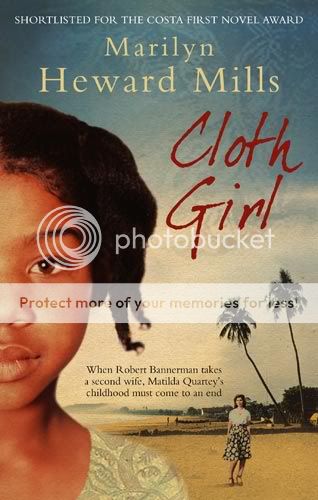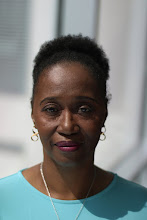I haven’t read much during the past year. I have a stack of books that I started reading and didn’t get around to finishing. In that pile is Anatomy of Fear, Cat O’ Nine Tales, Cruisin’, That Faith That Trust That Love, and The Memory Keeper’s Daughter - and the list goes on… And should I mention the list of how-to books that I have in another pile?
I’ve been tossing around the idea of doing something different and this is it. I’m going to post my thoughts on books as I read them. I figure it will help me stay on track and keep up with my reading. A writer MUST read. No ifs, ands, buts, or maybes. I'll start here with Cloth Girl. Feel free to share your thoughts on my thoughts or whatever you got out of reading the book.
Storyline: The book is set in Africa in the 1930’s and tells the story of Matilda, a fourteen-year-old girl, who gets married to a much older man (Robert Bannerman) soon after he sees her in his family compound. Julie - Robert’s first wife - is affronted by her husband’s marriage to a ‘cloth girl’ and makes Matilda’s life hell. The ‘cloth girl’ reference comes from part of the traditional dress.
Life makes a one-hundred-and-eighty-degree turn for Matilda, whose family is eager to capitalize on her new fortunes. She eventually meets Audrey, an expatriate, who teaches her English. Audrey hates everything about Africa, grows apart from her husband Alan, and turns into a drunk. Alan and Matilda meet and disastrous consequences follow.
Players: The characters were well-drawn, and likeable, except for Julie and Matilda’s mother, Ama. I suppose their individual situations brought out the worst in both women. I found Julie pretentious and spiteful. When both Ama and Julie passed, I was sympathetic, but not overly saddened.
It was easy to identify with Matilda, a teenager thrust into adulthood, and forced to deal with an uncaring husband, and a jealous rival. She quickly adjusted to her new life and made the best of her situation. I admired her for her desire to improve herself.
Every girl needs a champion, and Patience was spunky and egged Matilda on to take her rightful place as a second wife.
Robert Bannerman struck me as selfish, wrapped up in his own desires, still he wasn’t hateful, more clueless, and I felt for him when he was humiliated in front of his peers.
I liked: The view of Africa, both from the perspective of the locals and the ex-pats. The lifestyle and traditions of the town’s people, which contrasted with their Christianity. Matilda’s maturity made her admirable, along with her willingness to adapt to changes. She made the ultimate sacrifice, which branded her as a woman of character.
I could have lived without: Julie’s discontent with everything, and yet I came to a point where I understood her plight. It’s hard to empathize with someone who’s determined to be unhappy. Sometimes, I was tempted to skim her chapters to get back to Matilda’s story.
The Message: Women tend to make sacrifices at the expense of their own happiness, settling for the status quo, rather than trying to battle the unknown. Riches do not translate to genuine acceptance, particularly in a colonial society.
Overall Comments: This debut novel was long (561 pages), and took me a while to read, but I enjoyed it thoroughly. Matilda’s gradual movement from childhood to womanhood was handled with style and grace, so too the tragedy and turmoil in her life. The setting came to life, which provided a rich backdrop for this well-told story. I look forward to reading The Association of Foreign Spouses, also written by Marilyn Heward Mills.
Rating: For the fact that the book stopped short of un-put-downable, and that the forays into Audrey’s point-of-view became a tad bit irritating, I’m giving Cloth Girl 4.5 stars.































Sounds like an interesting read that could have used some editing. Have you read "The Help" yet, about the African American women in the 1960's? I just picked up "The Last Rendevous," by Anne Plantaganet. So chic, so French, so romantic. :)
ReplyDeleteHaven't read the books you mentioned, but I'll keep an eye out.
ReplyDelete